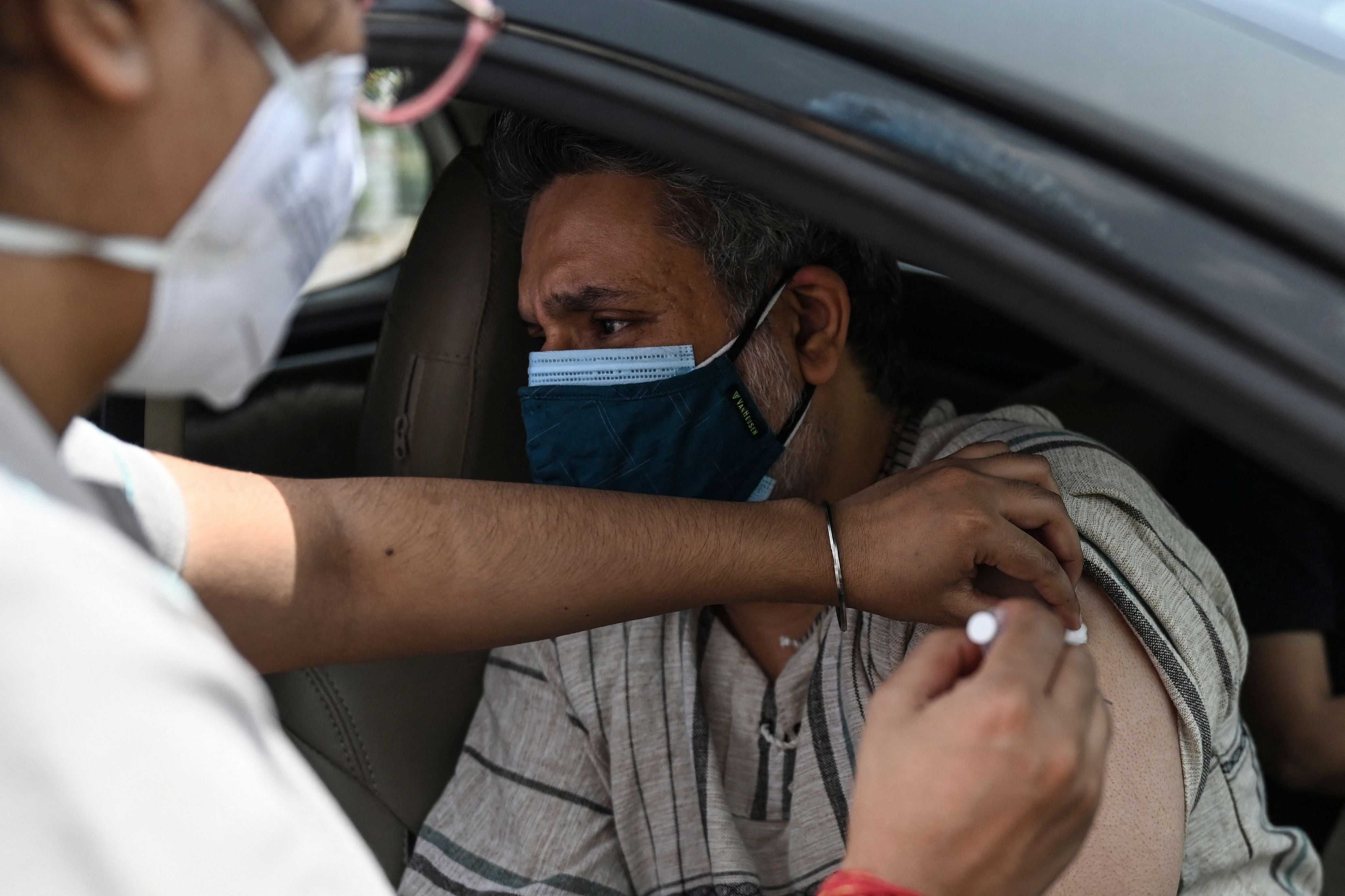Stop new Covid variants emerging by giving poorer countries more jabs, WHO, WTO, and IMF urge
Joint call from top international organisations for rich countries to step up donations

Your support helps us to tell the story
From reproductive rights to climate change to Big Tech, The Independent is on the ground when the story is developing. Whether it's investigating the financials of Elon Musk's pro-Trump PAC or producing our latest documentary, 'The A Word', which shines a light on the American women fighting for reproductive rights, we know how important it is to parse out the facts from the messaging.
At such a critical moment in US history, we need reporters on the ground. Your donation allows us to keep sending journalists to speak to both sides of the story.
The Independent is trusted by Americans across the entire political spectrum. And unlike many other quality news outlets, we choose not to lock Americans out of our reporting and analysis with paywalls. We believe quality journalism should be available to everyone, paid for by those who can afford it.
Your support makes all the difference.Wealthy countries like the UK need to give more vaccines to developing countries in order to stop a new Covid-19 variant emerging and destroying progress against the virus, leading international bodies have warned.
The World Health Organisation, World Bank, World Trade Organisation, and International Monetary Fund are among organisations warning of a "two-track" pandemic and a "dangerous gap" between countries.
It comes a day after more than 100 MPs and peers from across the parties urged Boris Johnson to commit to matching every dose bought for the UK with a donation to the WHO's Covax scheme.
The international organisations made their call an article authored jointly by Tedros Adhanom Ghebreyesus, the director-general of the WHO; Kristalina Georgieva, the managing director of the IMF; David Malpass, the president of the World Bank Group, and Ngozi Okonjo-Iweala, the director-general of the WTO.
It appeared in newspapers across the world including Der Spiegel in Germany, la Repubblica in Italy, the Daily Telegraph in the UK, Le Monde in France, and the Washington Post in the United States.
"Increasingly, a two-track pandemic is developing," the authors say, adding: "Inequitable vaccine distribution is not only leaving untold millions of people vulnerable to the virus, it is also allowing deadly variants to emerge and ricochet back across the world.
"Even countries with advanced vaccination programmes have been forced to reimpose stricter public health measures. It need not be this way."
They call call for $50 billion (£35 billion) in new spending commitments including grants to help developing nations with vaccination schemes.
And they further suggest that the target of vaccinating 30 per cent of the world's population by the end of 2021 should be increased to 40 per cent, and 60 per cent by the first half of 2022.
These "doses need to be donated immediately", the authors argue – in an article timed to coincide with G7 finance ministers convening in London and G7 health ministers in Oxford ahead of a major leaders' summit in Cornwall on June 11.
Scientists worry that new, more virulent or deadly variants are more likely to emerge in countries where the virus has run out of control because there are more instances of infection where mutations can happen.
These new variants have the potential to make existing vaccines less effective, which would be a disaster for the UK which has invested heavily on protecting its population through vaccination.
Join our commenting forum
Join thought-provoking conversations, follow other Independent readers and see their replies
Comments